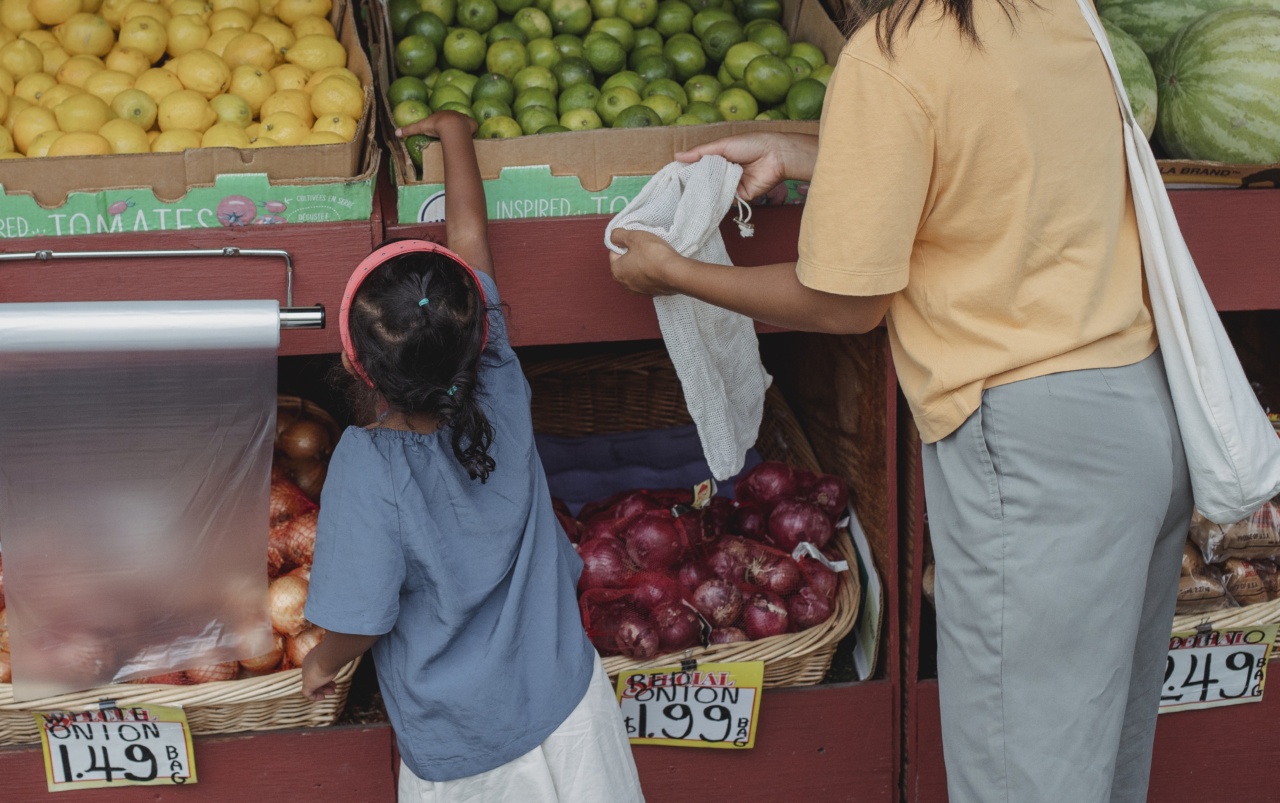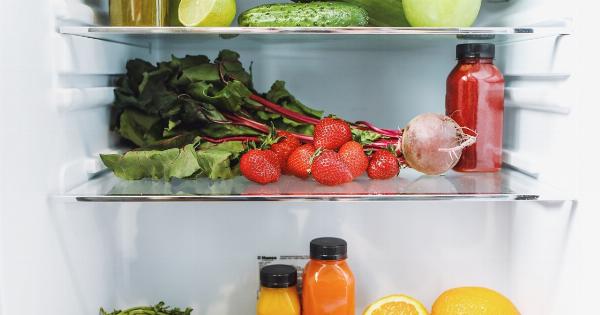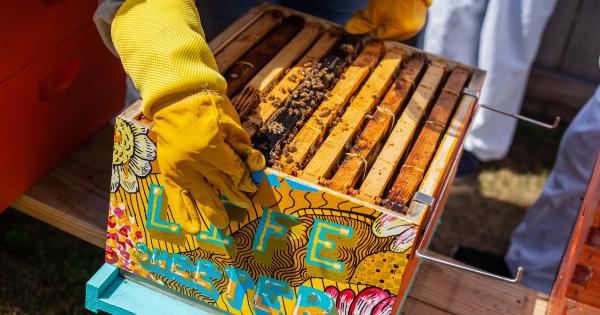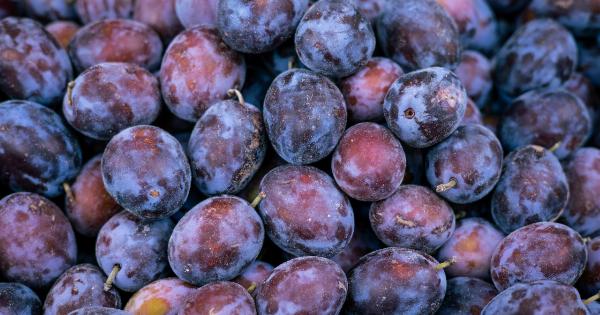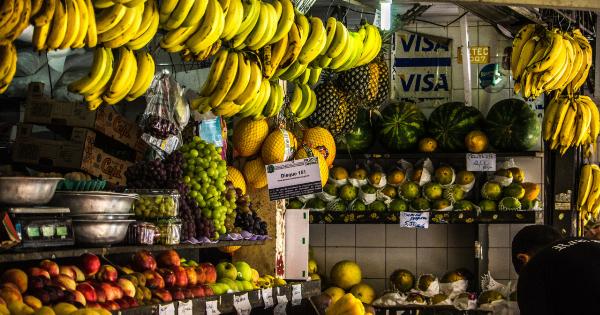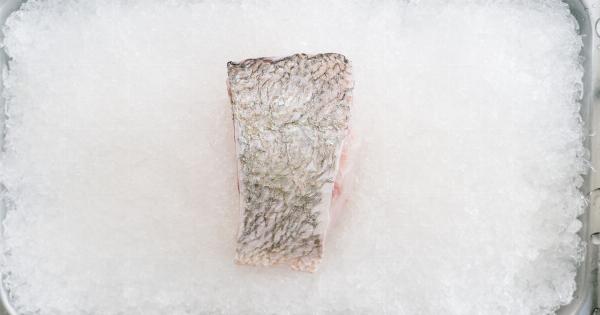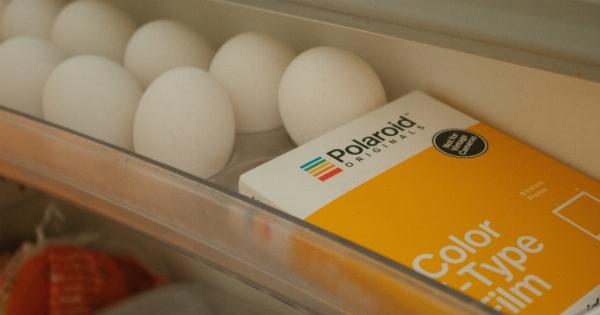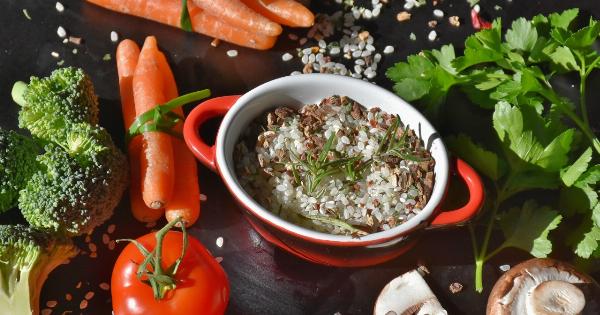Food waste has become a global crisis, wreaking havoc on our environment and exacerbating issues like deforestation, greenhouse gas emissions, and water scarcity.
As conscientious individuals and responsible parents, it is our duty to educate our children about the consequences of food waste and teach them how to minimize their impact. By instilling eco-friendly habits from a young age, we can help create a sustainable future for our planet.
The Environmental Impact of Food Waste
Food waste is a pressing issue for both developed and developing nations. The amount of food wasted worldwide is staggering, with around one-third of all food produced for human consumption going to waste.
This wastage contributes to various environmental problems:.
1. Greenhouse Gas Emissions
When food ends up in landfills, it decomposes and releases methane, a potent greenhouse gas that contributes to climate change. In fact, food waste is responsible for approximately 8% of global greenhouse gas emissions.
By reducing food waste, we can significantly curb these emissions and mitigate the effects of climate change.
2. Deforestation
Food production requires vast amounts of land, and as the demand for food increases, so does the need for agricultural expansion. This leads to deforestation, as forests are cleared to make way for more farmland.
Deforestation not only destroys ecosystems and biodiversity but also releases large amounts of carbon dioxide into the atmosphere, further fueling global warming.
3. Water Scarcity
Producing food requires substantial quantities of water, including irrigation for crops and drinking water for livestock. When food is wasted, all the water used in its production is also wasted.
This puts immense pressure on already scarce water resources, particularly in regions vulnerable to drought and water scarcity.
Teaching Kids to Reduce Food Waste
Instilling values of sustainability and responsibility in our children is crucial for the wellbeing of our planet.
By involving them in the process and making it a fun learning experience, we can raise environmentally conscious individuals who understand the importance of reducing food waste. Here are some practical tips and strategies to help teach your kids to reduce their impact:.
1. Meal Planning and Smart Grocery Shopping
Planning meals in advance and creating grocery lists with your kids can help minimize impulse purchases and reduce food waste. Encourage them to think about portion sizes and only buy what is necessary for the week.
Teach them about expiration dates and the difference between “best before” and “use by” labels.
2. Proper Food Storage
Show your kids how to store food correctly to preserve its freshness and prevent spoilage. Teach them about the benefits of using airtight containers and wrapping perishables properly.
By understanding the importance of proper storage, your children can avoid throwing away food that has gone bad.
3. Engaging in Cooking and Meal Preparation
Cooking together is not only a fun activity but also a great opportunity to teach your kids about using leftover ingredients creatively.
Teach them various recipes that can repurpose food scraps, such as using vegetable peels to make stock or transforming stale bread into croutons.
4. Portion Control
Help your children understand the importance of portion control to avoid wasting food. Encourage them to serve small portions and only take seconds if they are still hungry.
Teach them the significance of listening to their bodies and not overloading their plates.
5. Composting
Show your kids how to compost food scraps instead of throwing them away. Help them set up a small compost bin in the backyard or explore indoor composting options.
Teach them about the valuable nutrients that compost provides for plants and how it reduces the need for chemical fertilizers.
6. Donating Excess Food
Introduce your children to the idea of food donations. Teach them about local food banks or charity organizations that accept donations and explain the positive impact it has on people in need and the environment.
Encourage them to get involved in community initiatives aimed at reducing food waste.
7. Setting an Example
Children learn by observing their parents’ actions. By being mindful of your own food consumption and waste, you set a positive example for your kids.
Show them that you value and prioritize reducing food waste, and they are more likely to adopt those habits themselves.
8. Educating about the Consequences
Teach your children about the environmental consequences of food waste, explaining the interconnectedness between their actions and the health of the planet. This will help them develop a sense of responsibility and empathy for the environment.
9. Growing Food at Home
Consider starting a small vegetable garden with your kids. This hands-on experience allows them to understand the effort and resources required to produce food. It also teaches them the importance of respecting and cherishing the food they grow.
10. Celebrating Food
Encourage your children to appreciate and not take food for granted. Share stories and facts about different cultures’ relationship with food, highlighting the diverse traditions and the effort it takes to produce meals.
This fosters gratitude and a deeper connection with the food they consume.
By implementing these practices and teaching them to your children, you empower them to become responsible stewards of the environment.
Together, we can make a significant impact in reducing food waste and safeguarding our planet for future generations.
